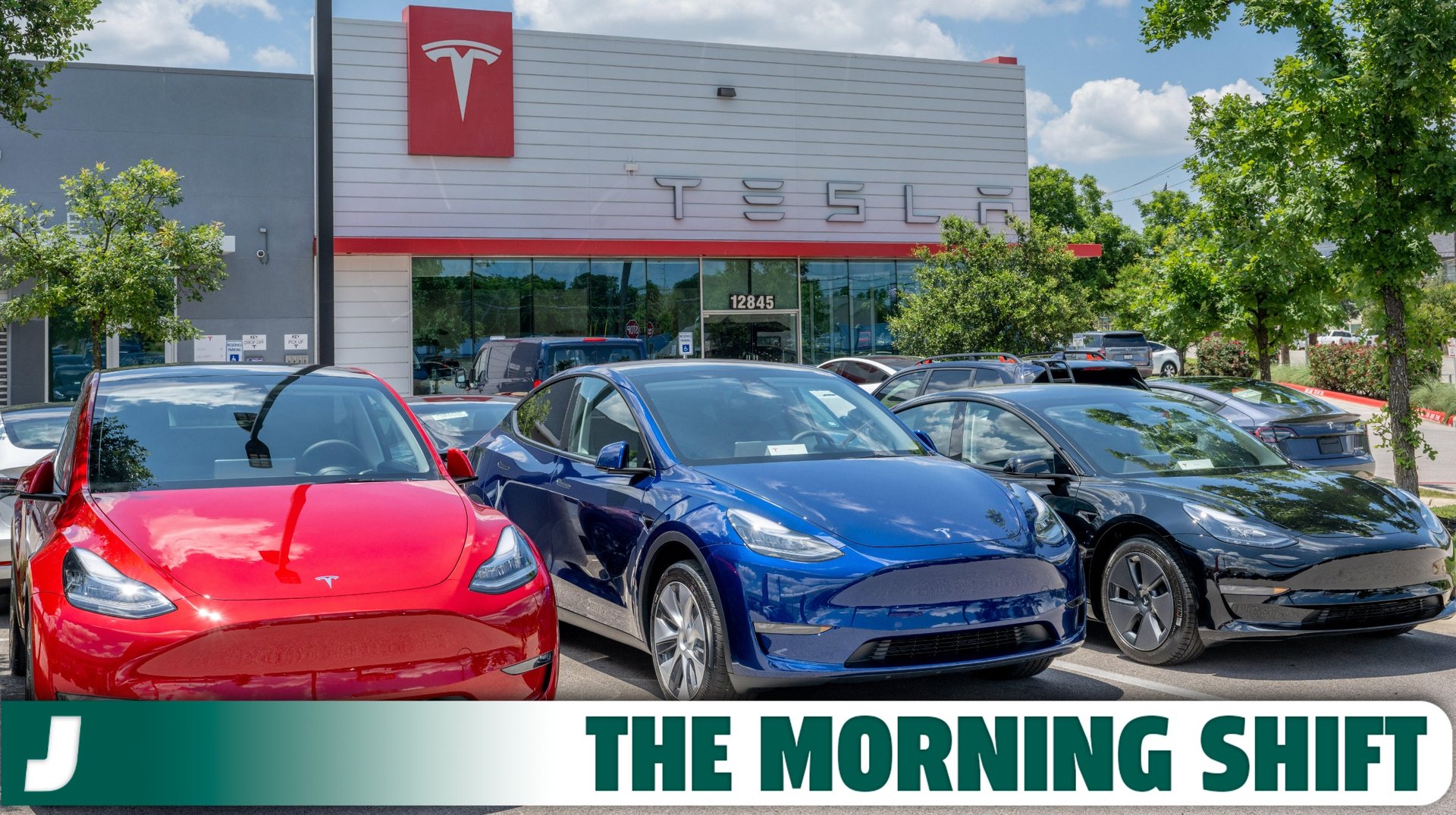Tesla is basically the only car company whose EV sales aren't rising in the U.S.
Tesla may still be the EV sales leader by a long way, but the margin is shrinking

New electric vehicle registrations rose 9.6% in May, mostly due to sales promotions and good lease deals. However, not everyone is having fun. Tesla’s new vehicle registrations fell for the fourth consecutive month, according to data from S&P Global Mobility.
Suggested Reading
EVs from 31 brands were able to capture 7.5% of the U.S. light vehicle market. That’s up from 6.8% at the same time last year. In total, May EV registration totaled 104,916 vehicles. In fact, EV registrations actually outpaced the broader light-vehicle market, which was down 0.7% to just under 1.4 million vehicles. Not too shabby. From Automotive News:
Related Content
“In terms of pure sales performance, EVs are making progress, but underneath the sales are huge incentives,” [Tom] Libby [associate director of industry analysis at S&P] said. “They are not sustainable, and they are causing losses on the part of automakers.”
Still, not everyone is having fun. Tesla may still be the EV sales leader by a long way, but the margin is shrinking.
Tesla, still the EV sales leader by a wide margin, saw its May registrations fall 15 percent to 48,587 vehicles, S&P Global Mobility said. Tesla’s share of the EV segment dropped to 46 percent from 60 percent a year earlier.
Among the strongest performers, Kia’s registrations rose 146 percent, Rivian’s numbers grew 87 percent, Hyundai increased 40 percent, and Nissan was up 87 percent year over year, the data showed.
Registration data serves as a proxy to automaker delivery numbers because Tesla doesn’t break out its U.S. sales and some other automakers don’t report EV sales by model. But the figures lag by several weeks.
Incentives seem to be a big reason for the uptick in electric vehicle sales.
Automakers in May poured on sales incentives, including subsidized financing and lease deals, with some models getting more than $15,000 in discounts, according to data from Motor Intelligence.
May incentives on the Kia EV6, a compact crossover, reached $16,812, Motor Intelligence said. Kia’s EV9 midsize crossover had $18,078 per vehicle, and the Cadillac Lyriq reached $17,732, the data showed.
Tesla’s Model Y had relatively modest incentives of $5,570 in May, Motor Intelligence said. Rivian Automotive, which hasn’t been profitable since launching in late 2021, offered incentives of $4,060 on its R1T pickup.
In all these examples, discounts rose significantly from a year earlier. The Lyriq’s May 2023 incentives were $761 per vehicle, Motor Intelligence said. The Model Y had $1,195.
One industry analyst feels electric vehicle sales may soon reach their ceiling.
EV makers have little choice but to offer attractive deals, cut production or stay mostly on the sidelines, as Toyota has done by focusing on hybrids over EVs, said Karl Brauer, executive analyst at iSeeCars.
Brauer predicted last year that EV market share would reach around 7 percent and then stall, based on a study of U.S. consumer preferences by iSeeCars.
“Here we are around 7 and a half percent, and what do we see?” Brauer said. “We see EVs stacking up at lots, we see [assembly plant] shifts being canceled, and we see massive incentives. Going from 2 to 5 to 7 percent EV market share was one thing. Going from 7 to 10 percent is another.”
Where the EV market will go is sort of an unknown, and I’m not going to speculate because I don’t have a crystal ball. However, based on incentives alone, now seems like a really good time to scoop up that electric vehicle you’ve had your eye on.
